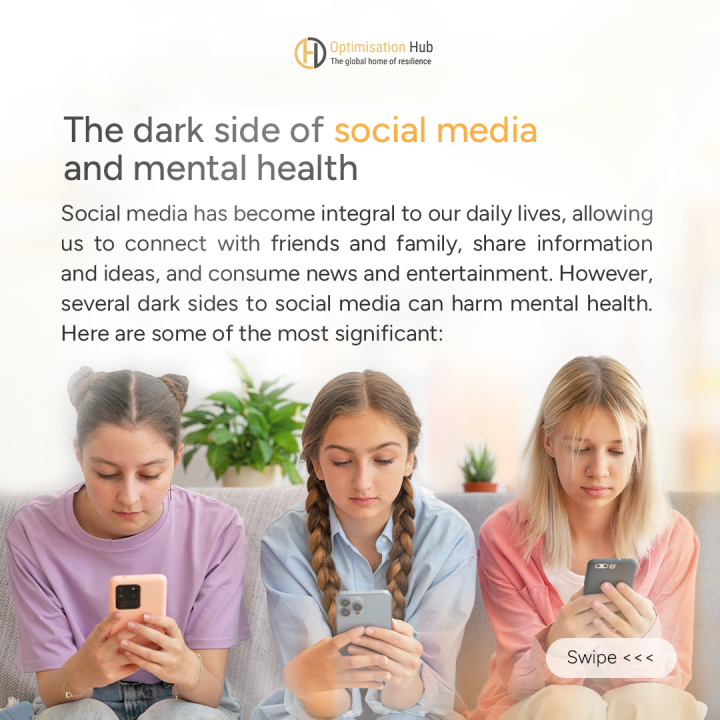Social media has undoubtedly revolutionized the way we communicate, share information, and consume content. However, with the proliferation of social media platforms, there has been a growing concern about its negative impact on mental health. From cyberbullying to social comparison, FOMO, disinformation, and addiction, social media has a dark side that can harm our mental wellbeing.
Cyberbullying
One of the most significant negative effects of social media on mental health is cyberbullying. Cyberbullying involves using digital technologies such as social media, text messages, and emails to harass or intimidate someone. Cyberbullying can take many forms, including posting hurtful comments, sharing embarrassing photos or videos, or spreading rumors online.
Studies have shown that cyberbullying can have severe consequences on mental health, including depression, anxiety, low self-esteem, and even suicidal thoughts. Victims of cyberbullying may experience feelings of helplessness, social isolation, and shame, which can exacerbate mental health problems.
Social Comparison
Social media has also been linked to social comparison, a process in which individuals compare themselves to others on social media. Social comparison can lead to feelings of inadequacy, envy, and low self-esteem, especially when comparing oneself to highly curated and edited images of other people’s lives.
Constant exposure to idealized images and lifestyles on social media can make individuals feel inadequate and unhappy with their own lives, leading to negative self-perception and mental health issues.
FOMO (Fear of Missing Out)
FOMO, or the Fear of Missing Out, is another phenomenon that can negatively impact mental health. Social media can create a sense of pressure to stay connected, up-to-date, and in the know about everything happening in the world.
FOMO can lead to anxiety, stress, and a constant need to check social media platforms to stay connected. Moreover, it can lead to feelings of social isolation and loneliness when individuals perceive that they are missing out on events or experiences others are having.
Disinformation and Fake News
Social media has become a breeding ground for disinformation and fake news, which can have severe consequences on mental health. Exposure to false information and conspiracy theories can lead to feelings of confusion, anxiety, and distress.
Moreover, individuals who are more susceptible to misinformation are more likely to experience psychological distress, as they may feel confused, overwhelmed, and uncertain about what is true and what is not.
Addiction
Social media addiction has become a significant concern in recent years, with many individuals spending an excessive amount of time on social media platforms. Addiction to social media can lead to several negative consequences, including disrupted sleep patterns, decreased productivity, and reduced real-world social interactions.
Moreover, social media addiction can lead to feelings of loneliness, depression, and anxiety, as individuals may become overly dependent on social media for social validation and emotional support.
Social media has a dark side that can harm mental health. Cyberbullying, social comparison, FOMO, disinformation, and addiction are some of the most significant negative effects of social media on mental health. As such, it is essential to promote healthy social media use and raise awareness about the potential negative consequences of social media use on mental health.




